Note: This post may contain affiliate links which means if you click on a link and purchase an item, we will receive an affiliate commission at no extra cost to you.
This post is brought to you by a few items Kim always travels with: a good sunhat, a sarong for the sun and beach, and a 6” chef’s knife.
This is the latest interview in a series featuring digital nomads talking about their lives and lessons (click here if you want to be interviewed). The goal is to help demystify the process of making money online, wandering the world, and living an unconventional life!
Kim and her husband Ryan left the US with remote jobs but soon realized their skills could transfer into creating a company of their own. They have a great story of setting up a business to help others set off on a successful nomadic life. Check out their courses if you’re interested in learning to code!
Thank you for sharing your story with Freedom Is Everything, Kim!
Key takeaways from Kim’s interview:
“Anyone who has traveled can tell you – travel gives you an entirely new perspective on the world. It makes you realize how similar and kind and welcoming humans can be, even if they don’t speak a word of your language. It also gives you a new perspective on your home – the comforts you enjoy or the social nuances that you never noticed before. While it may seem glamorous on the outside, nomading isn’t always easy or comfortable. But it makes you a stronger, more resilient, and more open-minded person.”
“You don’t have to have everything figured out 100% because part of the magic of travel is meeting people and getting inspiration while on the road. We thought of CodingNomads while already traveling, and it couldn’t have happened without fully letting go of my corporate, city mindset! 🙂 So make a general plan, and go for it!”
“Never bring more than what you can carry, FAST. You never know when you’ll have to run to catch a flight because you got stuck in traffic, or when you’ll have to take the stairs because the elevator is broken.”
Table of Contents
Introduce yourself! 🙂 Who are you? What do you do for work? And what is your nomadic story?
Hi! I’m Kim Desmond, and I’m a co-founder of CodingNomads – an international tech education and training company. I was born in Canada, raised in Texas, and lived in San Francisco for many years before becoming a nomad in 2015.
When my husband Ryan and I decided to leave San Francisco, we traveled in Central and South America for about a year before we started CodingNomads together. We spent time in Costa Rica, Nicaragua, Peru, Colombia, Mexico, Guatemala, Ecuador, and also traveled extensively around the southwest United States.
Ryan is a software engineer, and I’m a marketer, and we were fortunate to be able to work while traveling. After meeting many people who wished they also had skills to work remotely, we thought of the idea for CodingNomads to teach people software engineering skills so they can find high-paying work remotely or from wherever they wish to live.
What inspired you to start nomading? And how has nomading changed your perspective on life?
How I got started nomading
Before I met my husband, we had both spent time living abroad. It shaped who we were as people, and we wanted to experience that again together as a couple. In 2015 we came to a crossroads with our careers and decided it was the perfect time to travel and think about next steps. We both enjoyed our careers in engineering and marketing but wanted to do something different.
While traveling, we thought of the idea to host intensive coding courses in travel destinations around the world. Ryan would teach people how to code, and I would lead the marketing and business side. We built a simple website, and CodingNomads was born.
We found an amazing coworking space in Bali where we could host a course, and before we knew it, we had a small group of students signed up to attend. Our first course was incredible. We had students from all over the world attend, we had a super fun and productive time, and the students learned valuable skills that helped change their careers thereafter.
How nomading changed my perspective
It was truly a life-changing experience for our students and for us. For the first time, we were exposed to the vibrant digital nomad community, where we met many successful and inspiring people who engaged in all types of work to support their nomadic lifestyles. Both through our travels and through CodingNomads, we were exposed to different cultures and ways of life for locals and nomads alike.
Anyone who has traveled can tell you – travel gives you an entirely new perspective on the world. It makes you realize how similar and kind and welcoming humans can be, even if they don’t speak a word of your language. It also gives you a new perspective on your home – the comforts you enjoy or the social nuances that you never noticed before. While it may seem glamorous on the outside, nomading isn’t always easy or comfortable. But it makes you a stronger, more resilient, and more open-minded person.
Please tell us the detailed story of how you started your business.
Ryan and I were visiting Costa Rica in 2016 with friends who owned a Spanish immersion language school there. This gave us the idea – instead of teaching a language like Spanish, we could teach programming languages and really help people change their careers and lives while also having a fun travel experience.
Through our market research, we learned there were many schools teaching coding skills, but not many teaching the programming language that Ryan knows – Java. Java is one of the most in-demand programming languages, so we knew there was an opportunity there.
We launched our first course in Bali in 2017 and since have held courses in Thailand, Mexico, Spain, and Tahoe, USA. When COVID hit in 2020, all of our travel courses were cancelled, and everything shifted online. Thanks to the advice from our digital nomad friends we met in the years prior, we started building our online courses in 2018 and were ready to switch entirely when the world shut down. Without this foresight and planning, our business would have struggled to survive.
In addition to our flagship courses in Java and Python, we’ve launched additional software engineering courses in Data Science + Machine Learning, Django, Flask, JavaScript, Git & GitHub, SQL and Databases, Upwork Freelance Mastery, and more. We also have several additional courses under development.
Since launching, what has been most effective to acquire/retain customers and scale your business?
A bootstrapped launch
We bootstrapped our business while already on the road, so we did everything on a shoestring, especially when we launched.
We got listed on the relevant websites that aggregate coding training programs like ours. We got an interview published with one of the coding bootcamp aggregator and review sites – SwitchUp. This helped a lot in building some visibility and credibility from the get-go.
We also reached out to some media outlets and contributed blog posts to help build more visibility. We posted on Facebook and Reddit forums and spread the word through our personal networks. Each of our first sales came through several of these various channels and efforts, so we knew that it served us well to show up in as many places as possible.
Online marketing wins
Now with our courses online, we have several free courses on our learning platform to draw traffic, as well as a “freemium” model where logged-in students can see the beginning sections of every course for free.
After students log into our learning platform, they receive a series of automated educational emails that provide more free resources, information, and help. They also provide a clear way for students to schedule a call to discuss our courses – which is where most of our higher price sales happen. Prospective students can also download course syllabi and free training resources from our website, and they’ll also be added to our mailing list for education emails and announcements.
Also, through our digital nomad network, we learned how to use an SEO keyword research tool called Keysearch to find keywords with high search volume and low competition from other blogs. We now get tens of thousands of visitors per month by publishing relevant, SEO-optimized training blogs and resources. All of these strategies helped grow our online revenue for very little cost.
What advice would you give to someone who’s thinking about nomading?
Have a general work plan
If you don’t already have a remote job, do some research into what type of work you might be interested in before you go. Moving to a new place and trying to figure out a new career at the same time can be overwhelming. So having money saved and having a general idea of how you can make money will help.
You don’t have to have everything figured out 100% because part of the magic of travel is meeting people and getting inspiration while on the road. We thought of CodingNomads while already traveling, and it couldn’t have happened without fully letting go of my corporate, city mindset! 🙂 So make a general plan, and go for it!
Join a coworking space
One of the best new discoveries for us were coworking spaces. They are worth the money! They can be a great place to meet people, get involved in local events, find work, and have a productive workspace while on the road.
I definitely experienced anxiety around work and making enough money while traveling. There is so much more that goes into running a business than you realize before you start.
For me, the coworking space was a game-changer for this. I learned so much from attending educational events and from meeting other business owners who had the same unique experiences and problems as me. I now have an incredible group of friends who are also entrepreneurs and nomads, and their companionship and advice have been invaluable in my life.
How to choose a location
We had a unique task in choosing locations that worked for CodingNomads’ software engineering courses. Our main criteria boiled down to:
- A great coworking space with nearby restaurants and coffee shops
- Ample availability of AirBnbs / short-term housing
- Safety
- Public transportation, walkability, and/or affordable transport rentals
- Fun outdoor activities for the weekends
To get a feel for a place, the nomad community, and amenities, there are many Facebook groups for specific locations where you can meet people, ask questions, find events, and see if it’s a place you might like to visit or live.
Packing advice
Never bring more than what you can carry, FAST. You never know when you’ll have to run to catch a flight because you got stuck in traffic, or when you’ll have to take the stairs because the elevator is broken. I learned this lesson the hard way on my first solo international trip when I was 20. I had to rely on my friends to help me, and I vowed to never let that happen again. Now even when my husband offers to help with my bag, I grab both of ours and say, “I got it!”
What are the 2-3 favorite places where you’ve lived/traveled to and why?
So many places! Bali for its beautiful and unique culture, welcoming people, beautiful nature, and the best digital nomad home base I’ve ever experienced. Mexico for its fun culture and people, great food, outdoor adventure, and decent coworking options. Costa Rica and Galapagos Islands for incredible nature and animal experiences. Peru for its mountains, culture, and off-the-beaten-track treasures – as long as you get off the beaten track 🙂
If you had debt/student loans when you started nomading, how did you handle or think about this, and what advice would you give to other people with a similar situation?
When I first started traveling on my own after college, I deferred my student loans for one year to give myself a break before I really started working. I worked odd jobs while traveling but wasn’t making substantial money because my goal was more to travel than to work. I limited the deferral to one year to stay accountable for paying off the loans as quickly as possible.
After that, I followed the general advice for loans: consolidate, pay off high-interest loans first, put your payment on auto-pay, and pay more than the minimum when you can. Aside from loans, it’s a good idea to save money too – even just a little per month or year. Especially if an investment over time could earn more than the interest on your loan, it’s important to both pay down debt and also save for the future.
If you’re a woman, person of color, and/or LGBTQ, what should other people who identify similarly (and who haven’t traveled much) know about traveling/nomading?
Whether you’re a woman, BIPOC, LGBTQ, etc., it’s always helpful to do some research on the general local vibe regarding your identity, especially if you’re interested in visiting somewhere with a strong religious or conservative culture.
As a woman, it’s important for me to know that I will be safe and respected. I have visited places where men catcall women in the street and others where they won’t even look you in the eye. I have generally found that people are incredibly warm and welcoming, but you wouldn’t want to commit to an apartment or coworking space only to arrive and feel unwelcome by locals in any way. A quick Google search or question in a Facebook group should quickly clear up whether your identity will be welcomed – worth the look.
What digital tools do you use for your work/business?
There are a lot of tools that go into our online business. In addition to our learning management system – Moodle – our website runs on WordPress. We use Google Suite for email, calendar, docs, spreadsheets, etc. We use Asana for project management, Slack for collaboration, Hubspot for CRM, Mailerlite for email communication, Calendly for lead scheduling, Stripe for payments, Zapier for integrations and automations, Facebook Business Manager, TopTracker for contractor time tracking & invoicing, Wise for paying contractors, Wave for accounting, the list goes on!
What scale is your business at today, and what are your future goals?
Before COVID, we were running a 6-figure business, but our online sales only made up about 5-10% of our annual revenue. For the first few months, when everything shifted online, we were making less than $5k/month in sales. Although COVID hurt our business at first, it also resulted in an amplified demand for online education. Our revenue increased by 25% each quarter after transitioning online, and we are on track to exceed our previous annual revenue when we were running travel courses.
Because of our freemium model, we have thousands of users on our platform and mailing list. By using basic SEO strategies, our website and blog gets tens of thousands of unique visitors per month. Several of our blogs rank on Google #1 search results page, like Why Learn Java and Why Learn Python. And we’ve hired over a dozen online coding mentors, as well as administrative and marketing personnel to help us scale and grow.
A huge accomplishment for us this year was that CodingNomads ranked the #7 coding bootcamp in the world for 2021, based on SwitchUp student reviews! Being a small, family-run code school competing with large, investor-owned bootcamps, this was a testament to the high-quality service and experience you can get with a smaller program. This ranking gave us the visibility we needed to compete with the larger, more established programs when transitioning to an online format.
For someone interested in becoming an entrepreneur in your field, what’s the best advice you would give? And what books, podcasts, thought leaders, or other learning resources do you recommend?
For course creators
Teach what you’re passionate about, but make sure your course also solves a real need that people have right now and are willing to pay good money to solve it. I know very successful digital nomad course creators in productivity, Power Point, and even self-love mastery! So before you build a beautiful course, make sure whatever you offer, and whatever the need, make it solve someone’s real needs.
For becoming a freelancer in general
We published a how-to guide for finding freelance work that is geared towards software engineers, but the guidance and resources can be applied to many freelance fields. At CodingNomads, we also offer a course for mastering Upwork if you already have valuable skills and want to be efficient about finding high-paying work online.
Other sales & marketing resources
Some great books for sales and marketing are New Sales, Simplified, by Mike Weinberg, The Best Damn Sales Book Ever, by Warren Greshes, and Marketing: A Love Story, by Bernadette Jiwa. Other helpful thought leaders and resources in the marketing field include Joanna Wiebe from Copy Hackers, Neil Patel, Todd Miller, and Donald Miller.
If you only had a few minutes to live, what are the most important life lessons you would share with the world?
Say yes to life.
What do you travel with that you couldn’t imagine traveling without?
I’m a bit of a traveling minimalist 🙂 But a good sunhat, a sarong for the sun and beach, and my 6” chef’s knife.
How can people learn more about you and your work?
Youtube: https://www.youtube.com/channel/UCGA2DeCbZH4pTq7Mmh24-4A
LinkedIn: https://www.linkedin.com/school/codingnomads/
Instagram: https://www.instagram.com/codingnomads/
Facebook: https://www.facebook.com/codingnomads/
Twitter: https://twitter.com/codingnomads


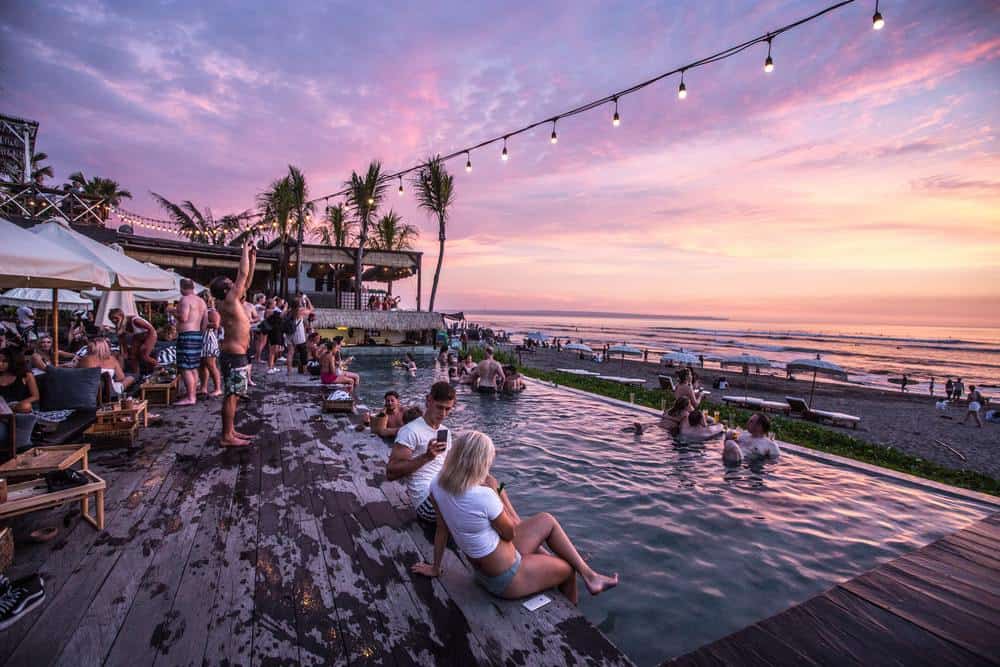
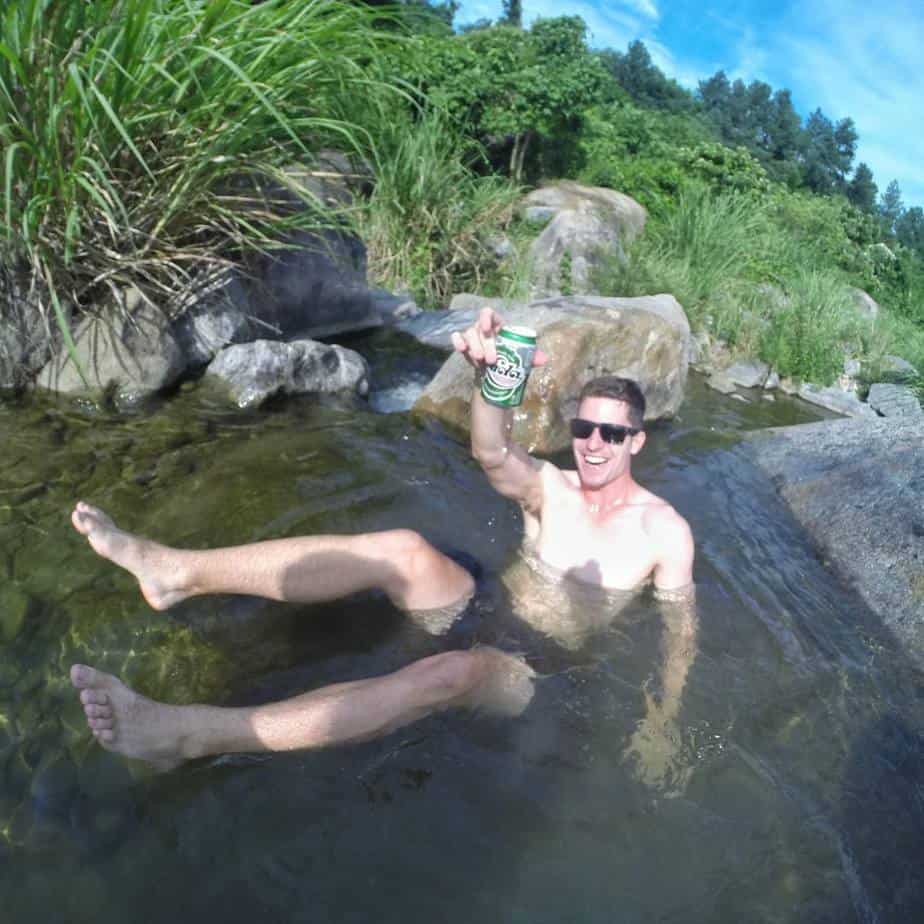
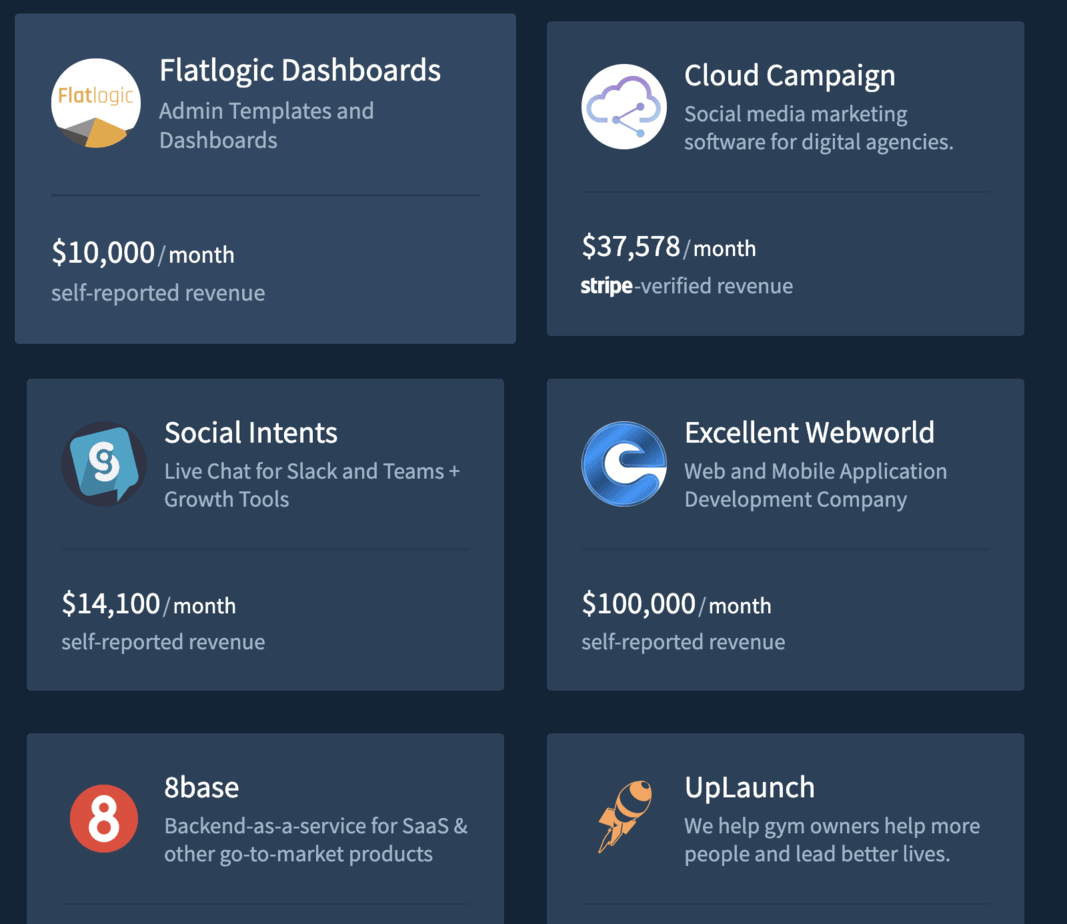









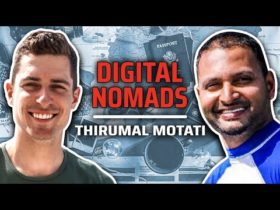
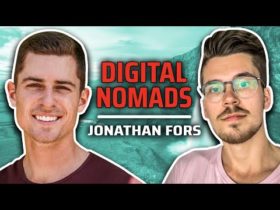
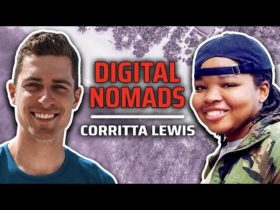
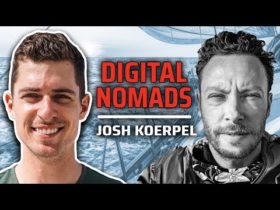
Leave a Reply
View Comments